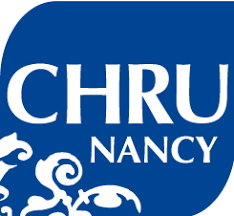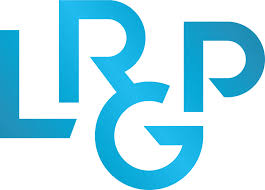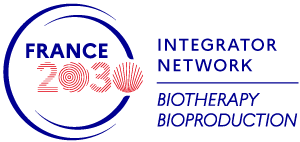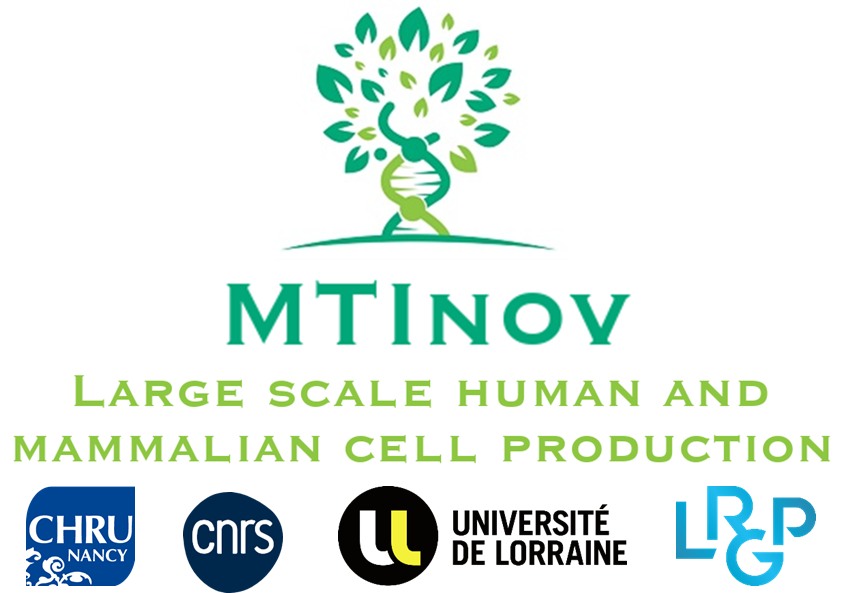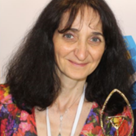Nancy Regional Hospital Centre (CHRU)
Danièle BENSOUSSAN
Contact : d.bensoussan@chru-nancy.fr
Eric OLMOS
Contact : eric.olmos@univ-lorraine.fr
- Biopharma/ Biomedicine
- Cellular engineering
- Immunotherapy
- Bioprocess engineering/bioproduction/extrapolation
- Bioprocess modelling
- Bioproduction
- Human cells
- CHO cells
- Cell therapies
- ATMP
- Clinical grade transfer
- Bioprocess engineering
- Scale-up
- Bioreactor Technology platform
- Custom-made isolator for GMP culture of adherent or suspension cells. (Comecer)
- Incubators in hypoxia
- Prodigy, (GMP platform for immunomagnetic separation) (Miltenyi)
- Instrumented production stations in mechanically stirred bioreactors are available:
– Six autoclavable 50-500 mL mini bioreactors (GPC).
– Two 0.5-2 L autoclavable bioreactors (Pierre Guérin).
– One 0.5-1.5 L bioreactor (Solaris Biotech) with single-use bags (CerCell).
– An instrumented platform equipped with 4 single-use 100-250 mL vessels (Ambr Sartorius).
– 0.5-2L bioreactor with perfusion system (Ipratech). Cytosis controller (IPRATECH); Cytoperf perfusion system (IPRATECH) coupled to a 1 L bioreactor (Applikon), controlled for O2, pH, Clipster® Disconnector (Sartorius)
– Two 2 and 5 L bioreactors (Biostat Sartorius)
- On-line probes used: dielectric spectroscopy probes (Hamilton), Raman (Kaiser)
- Vi-Cell (Beckman)
- Nucleocounter (Chemometec)
- Gallery biochemical analyser (Thermo)
- Optical microscopy (Zeiss)
- Fluorescence microscopy (Iprasens)
- Atomic force microscopy
- Scanning electron microscopy
- UHPLC-MS/MS chromatography (Shimadzu)
- Maldi Tof-Tof.
- Advanced numerical modelling platform (CPU and GPU) equipped with numerical flow simulation (Ansys Fluent, MSTAR), molecular and quantum modelling software.
- LUMINEX® 200™
- LT-XLabTherm (Kühner)
- Attune™ NxT Flow Cytometer
- ImageXpress® Pico™
- Flow Cytometer: MACSQUANT Analyzer Miltenyi
Objectives:
- Upstream development and optimisation of small-scale cultures, preclinical research / innovation in biotherapies
- Scaling up culture processes to increase biomanufacturing productivity / Clinical point of care (cell therapy)
- Meeting the challenges of GMP-grade ATMP industrial biomanufacturing for large-scale clinical trials.
Missions:
- Production of clinical-grade cell therapy products in accordance with Good Tissue and Cell Practices (GTCP).
- Production of innovative clinical-grade cell therapy products in accordance with pharmaceutical Good Manufacturing Practices (GMP).
- Production of GMP grade
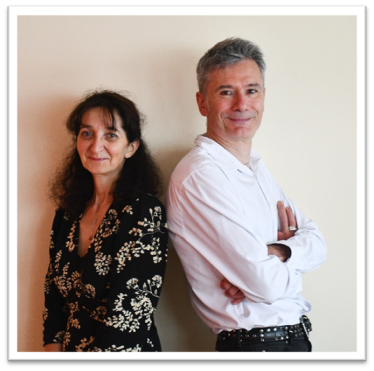
Objectives:
- Production of clinical-grade cell therapy products in accordance with Good Tissue and Cell Practices (GTCP).
- Production of innovative clinical-grade cell therapy products in accordance with pharmaceutical Good Manufacturing Practices (GMP).
Missions :
-
-
- Gestion la qualité des produits cellulaires, y compris la qualité fonctionnelle.
- Création des méthodes de production expérimentales de MTI
- Suivi et contrôle des cultures en ligne via des bioréacteurs.
- Modélisation cinétique et l’extrapolation des bioréacteurs sont utilisées.
- Design et simulation numérique des écoulements dans les bioréacteurs de culture cellulaire.
- Modélisation des interactions entre les CSM et leur support de culture à plusieurs échelles.
-
-
-
- GMP
-
Academics
Projects studying the expansion of different types of human cells:
- Mesenchymal Stromal Cells (MSCs) as Innovative Therapeutic Medicines (ITMs) and as raw materials for producing extracellular vesicles
- Immune cells (T and NK cells)
- CHO cells to produce monoclonal antibodies.
Industrials
-
-
- SESAME supported by the start-up StemInov
-
In this project, MTInov will have to apply its skills in clinical grade production for the phase I trial with GW-MSCs and develop its quality control platform.
-
-
- ACCESS (2022-2026): Advanced Cell Control by Spectroscopic Sensors
-
ACCESS is a project led by the company INDATECH (€2,830k including €1,745k funded by BPI France, France Relance) and has Ondalys, Cybernano, StemInov, Ypso-Facto, MTInov-LRGP, MTInov- UTCT as partners. The application was submitted in September 2021 under Axis 1 of the “Grand défi”. The aim of this project is to optimise MSC production by developing a clinical-quality in-line production control system. It is based on innovative spectroscopic sensors, machine learning algorithms and automated real-time feedback. In parallel, a digital twin of this device will be developed and a quality by design (QbD) approach to process modelling will be applied. More specifically, MTInov-LRGP is contributing its expertise in cell culture in bioreactors (on-line monitoring, intensification, modelling and design), while MTInov-UTCT is contributing its expertise in transfer to clinical grade and MSC cultures.
-
-
- SELPHi (2021-2024) : On-line Process Monitoring by Holography
-
SELPHi is a project led by the SME IPRASENSE (€52,831k, including €1,688k funded by BPI France), with partners Sanofi Aventis R&D and Sanofi Pasteur, Servier LSI, CEA Leti, MTInov-LRGP and MTInov-UTCT. The aim of this project, submitted under Axis 1 of the Grand défi, is to develop and industrialise a new generation of sensors based on holographic imaging to monitor cell states, without labelling, in real time and in situ. This will improve production yields for applications such as the production of therapeutic antibodies, vaccines and immune cells. In this project, MTInov-LRGP brings its expertise in CHO cell cultures in bioreactors (on-line monitoring, intensification, modelling and design), while MTInov-UTCT brings its expertise in the culture and characterisation of immune cells (T cells, NK cells). The combination of these skills will also enable us to develop a process for culturing these immune cells in stirred and controlled bioreactors. A premature project has been submitted to SATT Sayens in 2024 concerning the culture method.
-
-
- IT’SME (2022-2024): Innovative Technology Solution for Micro/Mili Electrophoresis
-
IT’SME is led by IPSOMEDIC INNOVATION (€672k, including €550k funded by BPI France) and has INSERM-CRCM and MTInov-LRGP as partners. The aim of this project, which has been submitted under Axis 2 of the Grand défi, is to develop a continuous flow purification tool for biomedicines that is small and very inexpensive to run and can be installed in a modular plant. The technique used is free flow microelectrophoresis. The integration between the bioreactor (continuous feed mode) and the purification module, as well as the validation of the biopurification of the molecules of interest, will be studied by the consortium. In this project, MTInov-LRGP is contributing its expertise in CHO cell cultures in bioreactors (on-line monitoring, intensification, modelling, design).
-
-
- SEQRET (2022-2024): Semi-automatic, integrable quality control system to characterise the secretome
-
The French company Kimialys is the leader of the SEQRET project (€1,335k, of which €1,172k is funded by BPI France, PIA) and its partners are PhaseLab, MTInov-LRGP and MTInov-UTCT. The aim of the project is to develop an online quality control system based on real-time analysis of the MSC secretome. It meets two needs: the establishment of correlations between the nature of the secretome and the bio-functionality of the cells to optimise culture conditions in real time, and the creation of a semi-automatic quality control module that can be integrated at any time into an immune cell or cell therapy production line to improve production yields. In this project, MTInov-LRGP brings its expertise in MSC culture in bioreactors, on-line monitoring and process intensification, while MTInov-UTCT brings its expertise in the production of clinical quality MSC (GMP compliance), and in cell characterisation and quality control methods.
-
-
- CLIMBIN (2022-2024) : On-line Control of Industrial Biomanufacturing
-
CLIMBIN is a project led by NMNS-Université de Tours (€2,232k, of which €1,825k funded by BPI France, PIA). Its partners are Bio3- IMT, Ondalys, INDATECH, Servier and MTInov-LRGP. The aim of the project is to develop an innovative analytical process control solution for optimising and automating cell cultures. In this project, the LRGP is contributing its expertise in CHO cell cultures in bioreactors (on-line monitoring, intensification, modelling and design) and the implementation of scale-up strategies.
-
-
- OPTI-STEM2 (2022-2025): OPTImisation of the STEM cell culture process
-
The OPTI-STEM2 project is led by the CDMO Cell-Easy (€7m funded by BPI France, PIA), whose partners include Roquette, RESTORE, TOXALIM, LAAS and MTInov-LRGP. The aim of this project is to optimise the production of MSCs to make them more widely available and diversify their therapeutic applications. It aims to combine large-scale production with on-board analytical monitoring.
